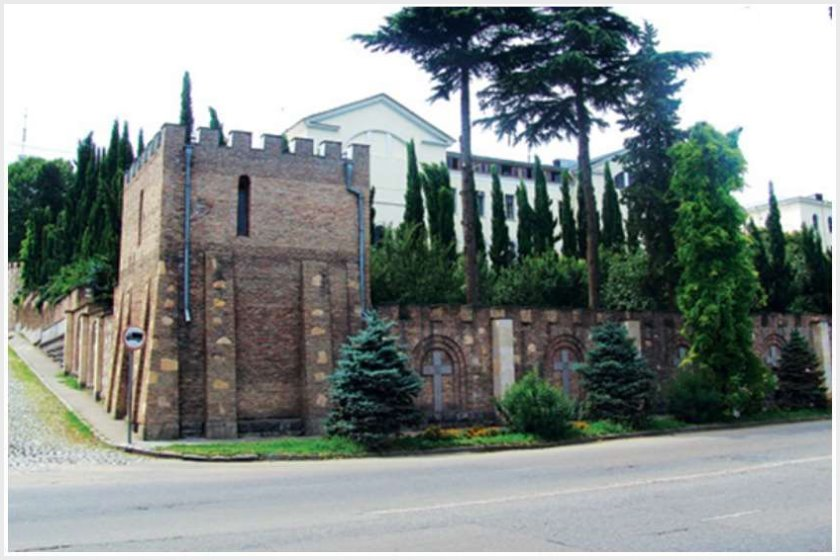საერთო ცხელი ხაზი +995 577 07 05 63


The Center for Human Rights Education and Monitoring (EMC) is responding to a bill in the Forest Code and other legislative acts that accompany it, which allows the a large amount of forest ownership to be transferred to the Georgian Patriarchate. The bill has already won the support of the committee in the third reading, and it is listed for enactment at the plenary meeting in the near future. EMC believes that this change is unconstitutional and contradicts the constitutional principles of equality and secularism, and is in conflict with the high standard of social purpose requiring fair and sustainable use of public resources. It is obvious that this decision is another populist attempt by the government to gain the loyalty of the Patriarchate and to use religious issues as powerful political tools, and has a clear pre-election context.
Adopting a new Forest Code for more sustainable use of forest resources and regulating the legal framework in this respect is a step forward. However, within the framework of these changes, the amendments to be made to the State Property Law would give rise to many legal and social problems. The amendments would allow those forest areas which lie adjacent to churches and monasteries, (up to a maximum of 20 hectares per church/monastery), and were without legally allocated title prior to the law coming into force, could be transferred to the Georgian Apostolic Orthodox Church.
The bill contradicts the constitutional principles of the rule of law and equality, as it establishes the rule of property privilege for only one religious organization without any legitimate public purpose and justification.
The obligation to transfer forest resources to the Church does not derive from the text of the Constitution, nor from the text of the Constitutional Agreement between the State of Georgia and the Orthodox Church, which only stipulates the transfer of ownership of those churches, monasteries, their ruins and the land they stand on that were taken away during the Soviet era. Under these conditions, it is unclear what can be a legitimate legal explanation and justification for the transfer of forest resources to the church or to any religious organization at all.
Besides, it is clear that the transfer of resources on this scale to the Orthodox Church alone is discriminatory and establishes a clearly unequal legal regime in respect to other religious organizations. Considering all this, once again it should be emphasized that the decisions of the Constitutional Court of Georgia of July 3rd, 2018 on the tax and property entitlements of the Patriarchate, where the court explicitly stated that "Recognition of the Church's special role is linked to her historical merits and does not serve to create a privileged legal position for the Orthodox Christian religion in the present. Historical merit cannot be considered as a source of legitimacy for privilege. Differentiation and the creation of a legally preferential position for the Church is not and cannot be the goal of the Constitution. [...] Granting certain rights to the Church does not imply the prevention of the use of the same right by other religious organizations. Thus, it is clear that this amendment to the Law on State Property will further deepen the already existing legal and factual inequality between religious associations.
The making of this decision at the pre-election stage raises suspicions that the government is trying to prove its loyalty to the church and use this legislative change for political purposes. The practice of transferring large-scale financial and property resources to the church during or right before the elections was also part of the previous government’s experience. Using religious issues and sentiments as a political weapon is a tool for obtaining electoral support in the hands of the weak and less trusted ruling parties, and it is clear that these approaches significantly undermine democratic processes. In today’s political and economic crisis, when the state is unable to meet the social needs of the masses of people impoverished and left without jobs and income due to the pandemic, this decision is another populist move to gain the support of the Church and its parishioners. It is noteworthy that the clergy and bishops have repeatedly threatened the government with the loss of their support.
It is unfortunate that the church itself does not comprehend that such decisions undermine public confidence in the church. The accumulation of financial and property resources and wealth in the hands of the Church on this scale leads to its complete social alienation from the rest of society. Such alienation is evident in the Church’s weak social service and its lack of political support for the population’s social grievances and concerns despite its high political and public influences.
In view of the above, EMC urges the Georgian Parliament not to support this amendment to the Law on State Property and not to subject the management of forest resources, which is of particular importance to the country, to the narrow party interests of electoral support.
If the law is passed, EMC will appeal the relevant provisions to the Constitutional Court.
[1] See also: https://emc.org.ge/ka/products/mitsa-romlitats-adigenshi-muslimi-mosakhleoba-sargeblobda-sapatriarkos-gadaetsa, What is going on in Dzama Gorge? - https://emc.org.ge/ka/products/ra-khdeba-dzamas-kheobashi
The website accessibility instruction